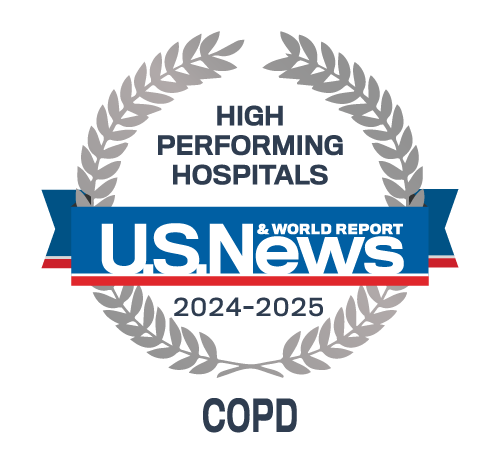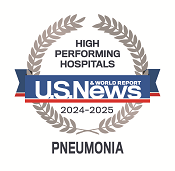COPD Treatment
Our pulmonary team is featured in this very helpful education on managing your COPD (chronic obstructive pulmonary disease).
The team at University of Maryland Upper Chesapeake Health Pulmonary Care and Sleep Medicine includes specialists with deep expertise in the diagnosis and treatment of chronic obstructive pulmonary disease (COPD).
While COPD cannot be cured, it is preventable and treatable. Our goal is to manage your symptoms and slow the progress of the disease. With a proper, personalized treatment plan that may include medications, surgery, regular check-ins with your doctor and self-care, we can help you live a longer, healthier life and reduce your chance of hospitalization.
What is COPD?
COPD refers to a group of diseases that cause airflow blockage and make breathing difficult. Most often, COPD presents in the form of:
- Chronic bronchitis
- Emphysema
- Frequent asthma attacks
Symptoms
- Ankle swelling
- Breathlessness that continues to worsen
- Chest tightness
- Fatigue
- Frequent coughing
- Inability to exercise
- Shortness of breath
- Wheezing
Causes
Though the main cause of COPD is smoking, nonsmokers can get it too. Certain environmental and genetic factors can increase your risk for the disease.
Treatment
Once we diagnose COPD, our care team immediately begins determining the best course of treatment. The first step is smoking cessation—if you smoke, you will be urged to quit.
Medications
Various medicines help manage COPD symptoms. The right medicine can help you:
- Breathe better
- Do more activities
- Experience fewer flare-ups
COPD medications can be taken in pill form (oral steroids, for example) or via an inhaler.
Surgery
In more severe cases, especially if you have emphysema, lung surgery may be needed. Options may include:
- Lung volume reduction surgery (done to remove damaged tissue and help the lungs work better)
- Bullectomy (removal of bullae [large air spaces that form when the walls of the air sacs in the lungs are destroyed and cause breathing problems] to help improve air flow)
- Lung transplant (removing a diseased lung and replacing it with a healthy one)
We will help you decide if surgery is right for you.
Rehabilitation
Pulmonary rehabilitation helps to ease the symptoms of chronic lung diseases like COPD. See our rehab services.
Learn More
The more you know about your respiratory health, the better. Our Breathing Better handbook can help you learn how to do more and live well with COPD and other chronic lung conditions. Check our calendar for upcoming smoking cessation classes.


